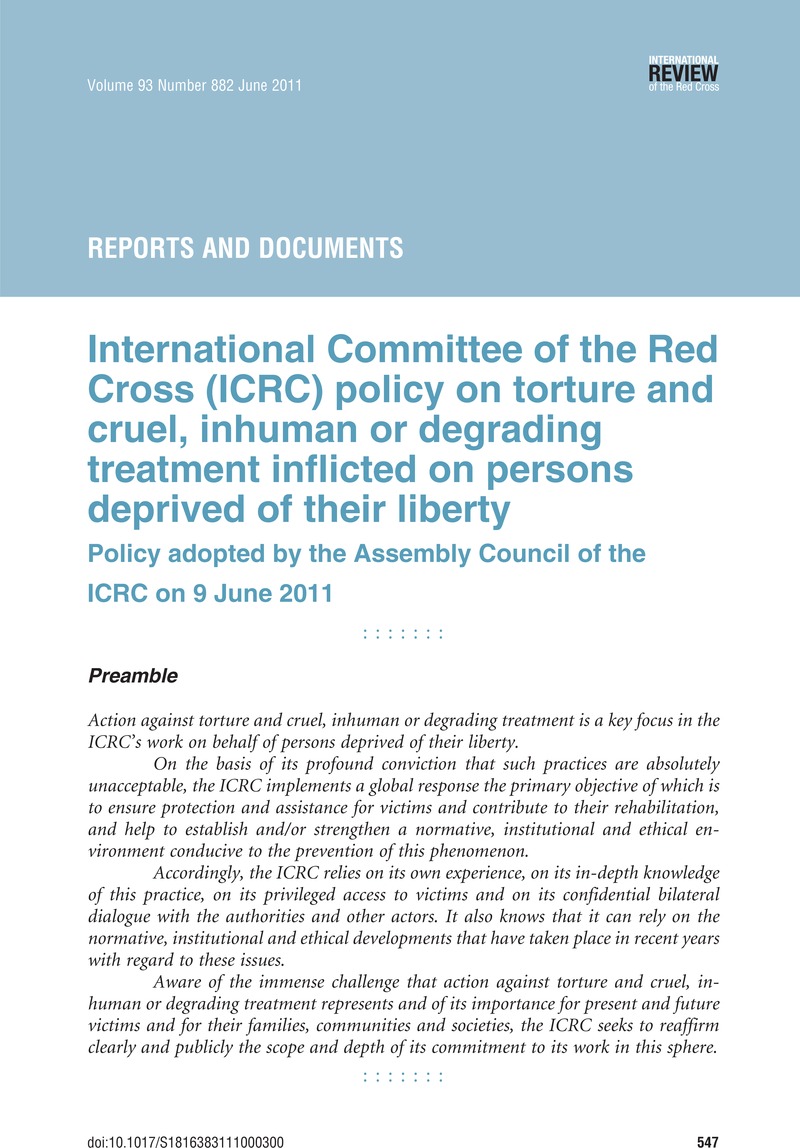Policy adopted by the Assembly Council of the ICRC on 9 June 2011
Published online by Cambridge University Press: 07 March 2012

1 In the context of its action against torture and cruel, inhuman or degrading treatment, the ICRC uses the following definitions: Torture consists of (1) severe pain or suffering, whether physical or mental, inflicted (2) for such purposes as obtaining information or a confession, exerting pressure, intimidation or humiliation. Cruel or inhuman (synonymous terms) treatment consists of acts which cause serious mental pain or suffering, or which constitute a serious outrage upon individual dignity. Unlike torture, these acts do not need to be committed for a specific purpose. Finally, humiliating or degrading (synonymous terms) treatment consists of acts which involve real and serious humiliation or a serious outrage upon human dignity, and whose intensity is such that any reasonable person would feel outraged. The expression ill-treatment is not a legal term, but it covers all the above-mentioned acts.
2 In line with the ICRC's Protection Policy, the expression ‘authorities and other actors’ used in a generic sense covers all authorities (State entities, international peace-keepers, and non-State actors, such as traditional groups and clans) and armed groups.
3 Deprivation of liberty refers to a person's situation from the moment he is arrested or captured until he is released. He may be released immediately after arrest or capture or later, after serving a prison sentence or after the detaining authorities decide to release him.
4 See the International Covenant on Civil and Political Rights, Article 4; the European Convention for the Protection of Human Rights and Fundamental Freedoms, Article 15; the American Convention on Human Rights, Article 27; the United Nations Convention against Torture and Other Cruel, Inhuman or Degrading Treatment or Punishment, Article 2(2); and the Arab Charter on Human Rights, Article 4(b).
5 For further details of this policy, see the International Review of the Red Cross, Vol. 87, No. 858, June 2005, pp. 393–400.